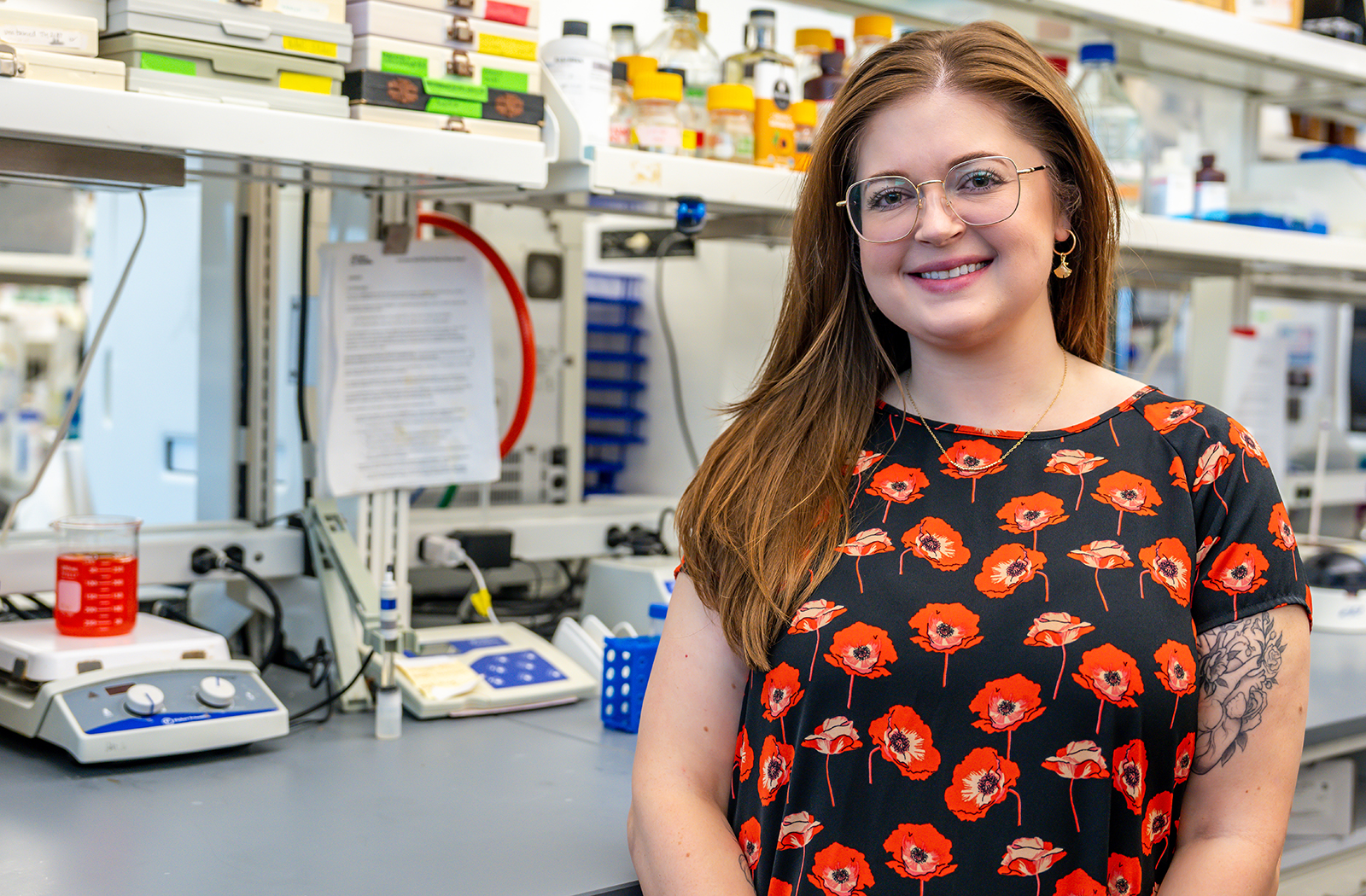
Women in Medicine and Science – Ashton Jorgensen, PhD

Ashton Jorgensen, PhD, works as a postdoctoral researcher in the Department of Basic Medical Sciences (BMS) at the University of Arizona College of Medicine – Phoenix.
She first started studying the cardiovascular system at Louisiana State University Health Shreveport where she earned her PhD in pharmacology. Afterward, she started doing research in the laboratory of Taben Hale, PhD, vice chair of BMS, associate dean of Graduate Studies, professor in the departments of BMS and Internal Medicine, and director of the college’s Women in Medicine and Science group.
“I chose this field because heart health is vital to overall well-being, and I joined Dr. Hale’s lab to focus on how sex differences influence cardiovascular disease,” Dr. Jorgensen said.
According to Dr. Jorgensen, the most pressing health issue in her field is the underrepresentation of women in cardiovascular research. “Women are underrepresented in cardiovascular research, and evidence shows they may not get the same benefits from common treatments as men,” Dr. Jorgensen said. “Since treatment guidelines are mostly based on male data, this limits our ability to prevent and treat heart disease effectively in women.”
To address this, Dr. Jorgensen’s research investigates sex-specific differences in cardiac fibroblast function and extracellular matrix remodeling. By uncovering mechanisms behind these differences, Dr. Jorgensen’s goal is to close critical knowledge gaps, identify novel targets for treating heart failure in women and optimize therapy for both sexes.
Success for Dr. Jorgensen is being a scientist who asks meaningful questions, follows the evidence and contributes to discoveries that advance the field. She also views success as mentoring the next generation, so they can build on that work and carry the field forward.
“I hope to inspire the next generation of physicians and researchers by encouraging them to ask bold questions, stay curious and embrace challenges along the way,” Dr. Jorgensen said. “I want them to see the real-world impact of their work while feeling supported as they grow into the scientists and physicians they aspire to be.”
And collaborating with fellow women in medicine and science is important for Dr. Jorgensen because it builds a supportive network that advances leadership, strengthens impact and ensures women have a strong voice in shaping the future of research and health care.
Through that collaboration, she hopes to continue working toward a future that bridges the gap between women’s health and attention to new therapies.
“In 10 years, I hope cardiovascular research fully closes the knowledge gap in women’s health, enabling personalized, effective treatments for all patients,” Dr. Jorgensen said.
About the College
Founded in 2007, the University of Arizona College of Medicine – Phoenix inspires and trains exemplary physicians, scientists and leaders to advance its core missions in education, research, clinical care and service to communities across Arizona. The college’s strength lies in our collaborations and partnerships with clinical affiliates, community organizations and industry sponsors. With our primary affiliate, Banner Health, we are recognized as the premier academic medical center in Phoenix. As an anchor institution of the Phoenix Bioscience Core, the college is home to signature research programs in neurosciences, cardiopulmonary diseases, immunology, informatics and metabolism. These focus areas uniquely position us to drive biomedical research and bolster economic development in the region.
As an urban institution with strong roots in rural and tribal health, the college has graduated more than 1,000 physicians and matriculates 130 students each year. Greater than 60% of matriculating students are from Arizona and many continue training at our GME sponsored residency programs, ultimately pursuing local academic and community-based opportunities. While our traditional four-year program continues to thrive, we will launch our recently approved accelerated three-year medical student curriculum with exclusive focus on primary care. This program is designed to further enhance workforce retention needs across Arizona.
The college has embarked on our strategic plan for 2025 to 2030. Learn more.